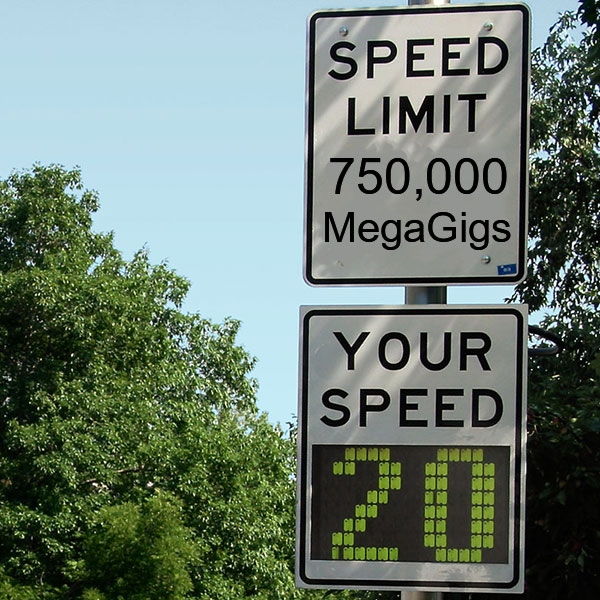The Great Internet Speed Myth
Last August, The Wall Street Journal summarized the results of extensive real-world testing in an article entitled The Truth About Faster Internet: It’s Not Worth It. That pretty well sums it up.

If you listen to the hype, we all desperately need more Internet speed. After all, we’re streaming TV, using WiFi calling, working from home, and all these things need gobs and gobs of bandwidth, right? Well if you ask a real network engineer (like your own humble Beach Nerd, for example) they’ll tell you that you don’t need – and can’t even use – nearly as much as you might think.
When you move up to or beyond about 25 Mbps (what the FCC classifies as “high-speed broadband”), any real, perceptible differences in performance essentially vanish. The truth is, you should be able to do everything that you want to do online seamlessly with any quality 25+ Mbps connection. The Journal is just the latest – and one of the most prestigious – to confirm that fact.
They had dozens of testers with speed plans ranging from 15 Mbps up to 150 Mbps intentionally trying to overload their connections with multiple simultaneous video streams, and guess what they found? No noticeable difference. In fact users with seven streams at once averaged about 7.1 Mbps of sustained usage. And the 15 Mbps people were just as happy as the 150 Mbps people overall.
You may say, “But I’m having problems and delays and buffering, and my cable company says I need their faster plan.” Well if you have at least 15-25 Mbps of honest bandwidth and you are still having issues, something else is likely wrong. Could be something in your home, but more likely it is just their busted network. The Journal testers tended to be on systems with decent quality from big providers. Network quality is WAY more important than any particular speed plan.
To quote directly from the Journal article:
Broadband-industry experts said when consumers complain about service, the most cost-efficient action for call-center representatives is offering a faster package, even if that doesn’t solve the problem.
That “makes the tech support call shorter,” Mr. Feamster said, “and it helps the internet service provider sell faster service.”
SHALINI RAMACHANDRAN, THOMAS GRYTA, KARA DAPENA AND PATRICK THOMAS
“THE TRUTH ABOUT FASTER INTERNET: IT’S NOT WORTH IT”
THE WALL STREET JOURNAL, AUG. 20, 2019
I like to say that ISP’s trying to sell faster service on a shaky network is the illogical equivalent of TxDOT saying “This road is too narrow and full of potholes, with too many cars on it, so we’ll fix it by raising the speed limit!” Think about it: if you only really need 25 and couldn’t get that reliably, how are they going to give you 100? Oh, and don’t rely on speed tests too much. If in doubt, read our post on that subject: But Just Look at My Speed Tests!
Now this discussion has focused mainly on video streaming because that is one of the more bandwidth-intensive things that we do online. Of course the same findings apply even more to less taxing activities like web surfing, teleworking, music streaming, etc. File downloads are an interesting topic, and one that dubious characters like to point at. Guess what? We have a post on that too: An Oldie-But-Goofy: The Download Speed Chart.
So next time your provider tries to sell you a higher-speed plan, ask them “Are you going to use the extra money to fix your lame network?” That’ll be fun! Or you could just get BeachiFied!
